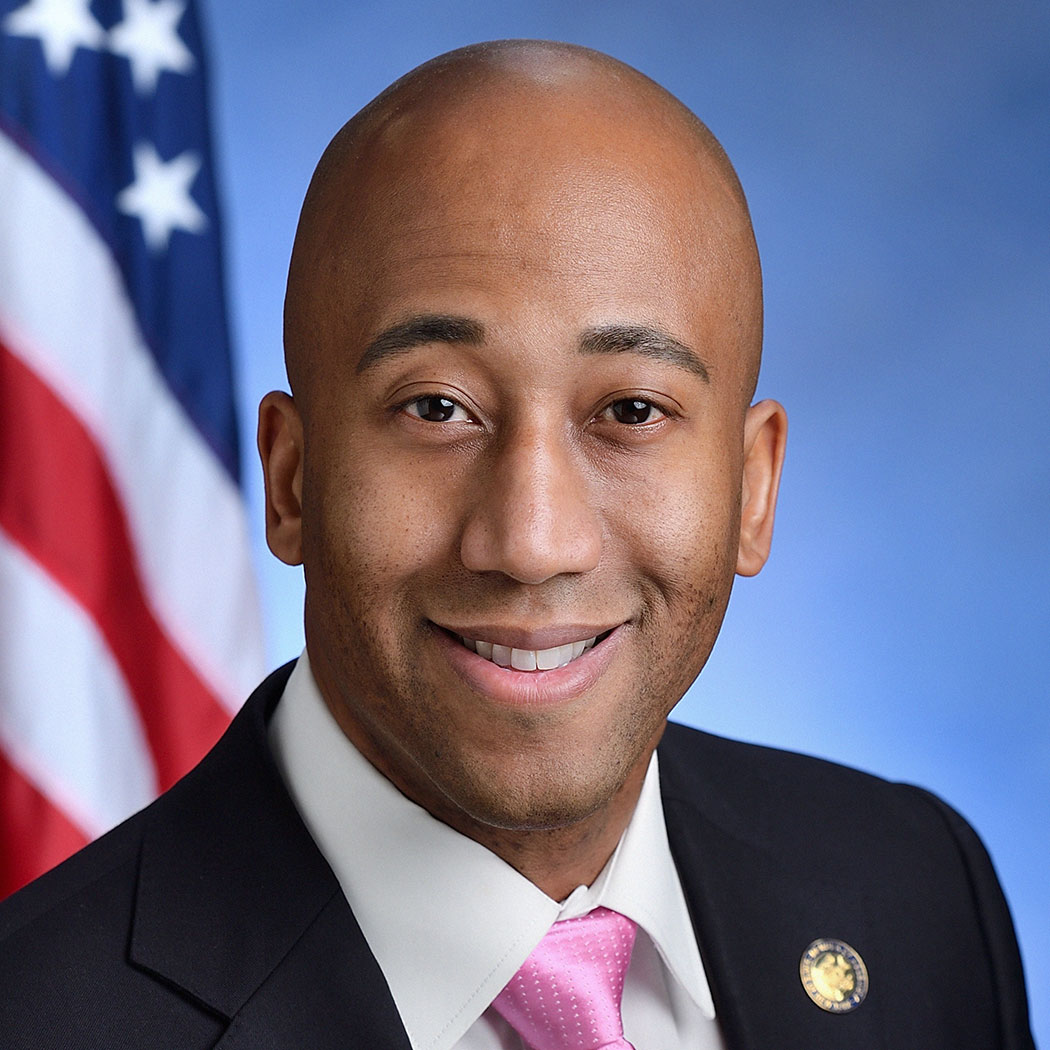New York State
New York is taking its time on tech. That’s how these lawmakers want it.
The state technology chairs weigh in on gig workers rights, data privacy and the tech information gap in government.
Tech industry REDPIXEL.PL/Shutterstock
A lot can happen in a year, and for state Sen. Diane Savino and Assemblyman Clyde Vanel – chairs of the Senate Committee on Internet and Technology and the Assembly Subcommittee on Internet and New Technology, respectively – this past year has been spent trying to answer monumental questions about technology that will shape the future of work and daily life for New Yorkers. Preparing for the future of work, protecting citizens against the biases of algorithms, adapting to a transforming economy – all are questions under consideration.
On some of those questions, Savino and Vanel have yet to find an answer. Both lawmakers favor sitting back and studying an issue before tackling it – or more accurately, regulating it – head-on. So while states like California have passed sweeping changes to how gig workers are classified, and cities like Oakland and San Francisco have banned the use of facial recognition by law enforcement and other government agencies, New York is studying those issues, along with questions like how best to regulate digital currency. Eventually, the goal is to set up standards and regulatory frameworks on these issues, with input from the smartest minds on the topics. New York’s process just might move a bit more slowly.
While Vanel has led his subcommittee for two sessions, and Savino hers for one, both said that when it comes to technology, they’re never done catching up or learning. City & State checked in with Savino and Vanel for an update on their work in the past session, their priorities heading into 2020 and even what it’s like to work with each other. Spoiler alert: Nothing but compliments all around.
Their responses have been edited for length and clarity.
Diane Savino

Chairwoman, state Senate Committee on Internet and Technology
Last session, you sponsored a bill to create a third category of workers to afford gig workers more labor protections, and you recently held a hearing to continue that conversation. What were your impressions from the hearing?
I thought it was a very informative process that we had with people from all sides of this issue – from the AFL-CIO to other unions like 32BJ (SEIU), hearing from some of the tech operators, Tech:NYC, the Internet Association and even a restaurant owner who came in and talked about how he’s doubled the size of his business by utilizing delivery services. What I wanted to hear from people was what’s actually happening, what’s the differences between what’s happening in California and New York? I know everyone is paying attention to (California Assembly Bill 5), now is that the right answer from New York?
You’ve said in the past that you don’t think AB5, California’s new law that would classify some gig workers as employees, is right for New York. Is that still where you stand after the hearing?
I don’t think it’s the right answer. I think it’s part of the right answer. California is different than New York in a bunch of ways, but mostly because California started from almost 10 years of operating after the Dynamex decision, which laid out the fact that everyone’s an employee, unless they’re not employed. That’s where the ABC test comes in. New York doesn’t have that. We have the ability to start from a fresh space and try and define what a gig worker really is, who is an employee, who is not.
Facial recognition, data privacy, gig worker rights – these are all issues on which other cities and states, like California, have taken bold legislative leaps in the past few years. But it sounds like your approach is more cautious, to study the issue and make a decision. Being first here doesn’t seem like it’s your top priority.
Yes. As I say, sometimes New York leads and sometimes we follow. And generally, if we are slow to the game, it’s because we’re more thoughtful and more deliberative. Then again, I’m not disparaging what California is doing. I have a different approach. Jumping in and passing legislation to prevent or ban something doesn’t acknowledge the fact that it’s still out there in the marketplace. If anything will justify my position on this it’s what’s happening in the cannabis industry. You have X number of states that have created legal cannabis. It’s still illegal on the federal level, and then people are rushing in to try and pass legislation to control some aspect of it. And that’s not the way we should do things. We should take our time. We should analyze it. We should speak to people on both sides.
Clyde Vanel

Chairman, Assembly Subcommittee on Internet and New Technology
In December, Gov. Andrew Cuomo signed into law your bill creating a digital currency task force to study how to regulate blockchain and cryptocurrency. Where does that task force stand today?
We’re excited to start the work on the Digital Currency Task Force in light of what’s going on with Libra, in light of what’s going on around the world when it comes to blockchain and cryptocurrency and digital currencies. The governor’s office is supposed to appoint their seven members, and I’m not sure when they’re going to do it, but that’s probably going to happen before session. We identified our six (members), and they are going to really help us with the report to figure out what are the proper guidelines to try to regulate digital currency and cryptocurrency, so we’re excited about that.
Something you spoke about back in January and that is now a reality is this newtask force to study artificial intelligence and robots. What are you hoping that will produce?
We’re excited about that. I’m not sure when we’re going to have to name all the members, but hopefully we get that done before budget. We’re looking to figure out things as benign as trying to address discrimination when it comes to algorithms, to things as humanistic as will the robots kill us? Also, how do we deal with what work is going to look like in the future? How is robotics, automation, artificial intelligence changing work?
Any other big plans in the works?
There’s another big dreamer thing that we’re trying to do. It’s very important for us to do stuff in STEM and be able to promote jobs and innovation in New York state. We’re going to be very bold and ambitious and try to introduce a New York state space program.
Wow. Talk more about that.
You know, going to the moon? That’s what I’m talking about. Private companies like SpaceX are sending Starship to orbit, or what have you. We have states like California, New Mexico, Florida, that have very big aerospace industries and companies. New York state used to be one of the leaders in the aerospace industry, on Long Island and upstate. We lost that business, we lost those entrepreneurs, we lost those employers. I think New York state should invest in a space program. I think that’s something that we can do. We can partner with private business, and I think that we can attract those companies, and I think that our SUNY and CUNY system has great programs to feed workers, employers and entrepreneurs in the commercial space business.

NEXT STORY: New York’s role in rebuilding Puerto Rico’s power grid
